Why Does Don Draper Go to the Movies?
Just ~another~ Mad Men ramble.

Since the conception of the motion picture, going to the movies has become a powerful form of escapism. We leave reality behind, if only for a little bit, to find satisfaction elsewhere. Sometimes we live vicariously through others, imagining a life that isn't our own. Movies can instruct, but they can also influence viewers for the worse. Regardless, going to the movies is an evergreen way to escape.
Thus is the pastime of Don Draper, fictitious Madison Avenue creative genius in the world of advertising (or at least the world Mad Men has set up). When he’s not pitching ads, drinking or adding notches to his bedpost, he is enjoying the wonders of the silver screen.
Don seems to be living the successful life of an ad man. However, that doesn’t mean that leaving reality through film might not be necessary. But I must analyze why Don Draper in particular takes his troubles to the movies so much.
If there's anything Mr. Draper and I have in common, it's that if we are ever missing, we probably are at the movies (not together...I wish though. I wish).
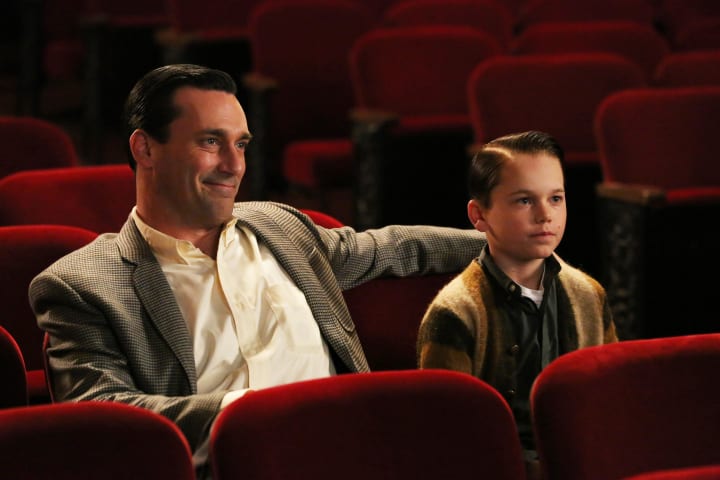
Courtesy of AMC
As someone in the persuasion business, you need to know how to sell. Whether it is an idea or a product or what have you, there must be some form of showmanship in getting your message across. You need to somehow create a need for your audience, and convince them that without it, they won't be happy. That's what happiness is, according to Don, "the moment before you need more happiness."
The same could go for a film trailer, for instance. If the clip you view sells you enough, influencing you to go out and become part of a film's audience, then persuasion has successfully done its job.
Another important aspect of film is that actors take on a new persona in order to seem to be something they are not. They also expect their audience to willingly suspend their disbelief momentarily as they reinvent themselves on screen. This masquerade probably intrigues Don because it is exactly what he did: He took on a different identity and found a different role. Don Draper reinvented himself after coming out of World War — Dick Whitman died, and the Mr. Draper we all know and love was born. Due to his own “rebirth,” Draper may admire actors for taking on a different form.
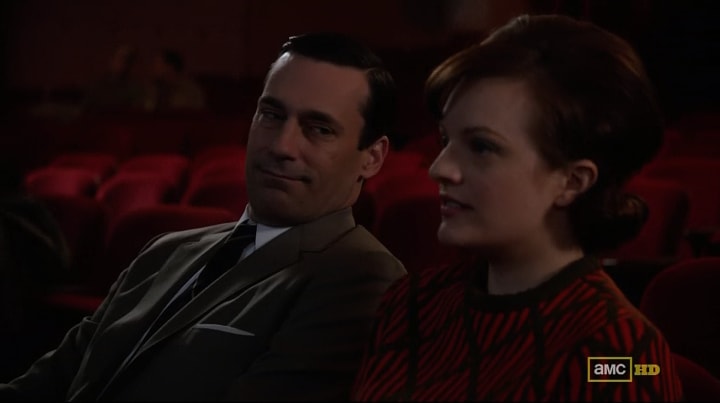
Courtesy of AMC
However, Don must work to maintain this facade. When the camera stops rolling for Cary Grant or Audrey Hepburn, they can continue their normal life and be themselves, yet Don cannot. His self-produced image is all he has, and he has built it up too much to even consider changing it. However, the fantasy of leaving everything behind lures him into spending so much time living vicariously through actors and actresses on screen. Their adventures become his own, and they are able to resolve everything by the time the credits roll. Even at the end of every episode and season, when you’d expect closure, Don is unable to solve his problems and be completely satisfied with the end results.
He tries very hard, and only a few time god we see him falter, if only for a flickering second, and then he is back to his cold, callous self.
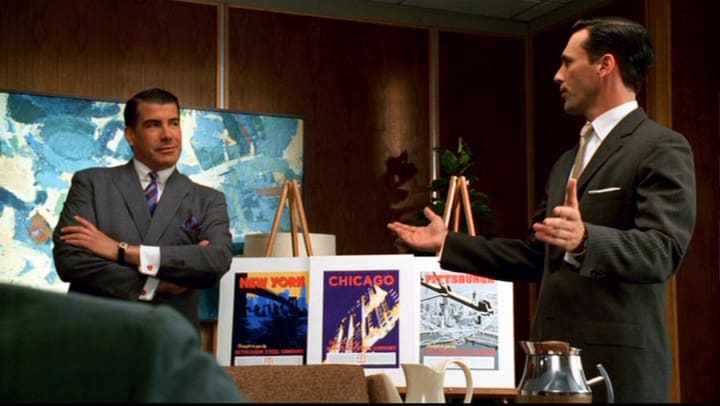
Courtesy of AMC
In advertising, agencies have the mission of convincing you to feel that certain way about a product or an idea. For example, billboards reaffirm that your happiness about something is acceptable. In film, there is a similar task at hand: To make an audience satisfied with what they see. However, this doesn’t necessarily mean that an audience will be happy leaving a movie.
As long as the psychological need is fulfilled, it doesn’t matter whether it is intended for happiness, sadness or anger. For example, someone may not feel happy after watching Alfred Hitchcock’s Vertigo, but they will find the need for stimulation is satisfied. There are movies we can watch, sob uncontrollably through (cough, TITANIC), and even though we don't feel happy afterwards, the media void is filled, and we move on (to anger about why they both couldn't fit on that damn door).
Anyway.
Mr. Draper isn’t exactly the happy ending kind of guy, anyhow.
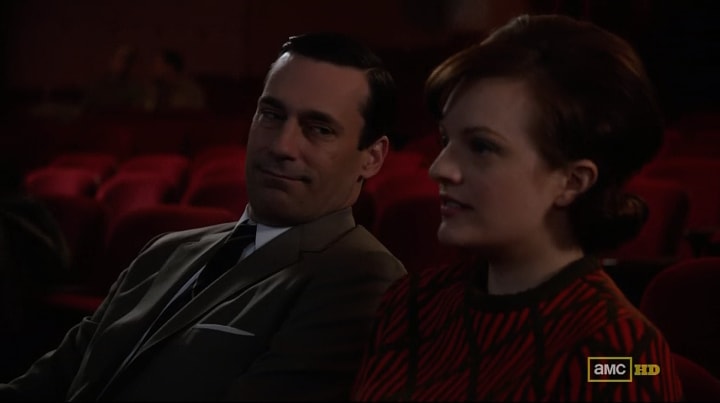
Courtesy of AMC
Maybe the rationale behind Don’s constant theater escapades is simpler than it seems. Don goes to the movies simply to escape his life, and he might even wish that once the credits roll on screen, the same would happen to him. As his self-destructive actions cause him to slowly lose everything, Don knows that he will always have film on his side. His inability to relate to people on a deeper-than-surface level along with his disgust for reality leaves him to hit up the box office and take a break from life, if only temporarily.
About the Creator
Marina Caitlin Watts
Marina loves Frank Sinatra and hates decaf coffee. The native New Yorker and Cornell grad knows every word to "Ferris Bueller's Day Off" and thinks Shakespeare is cool. If you need her, she's waiting for Godot. Twitter: @marina_caitlin




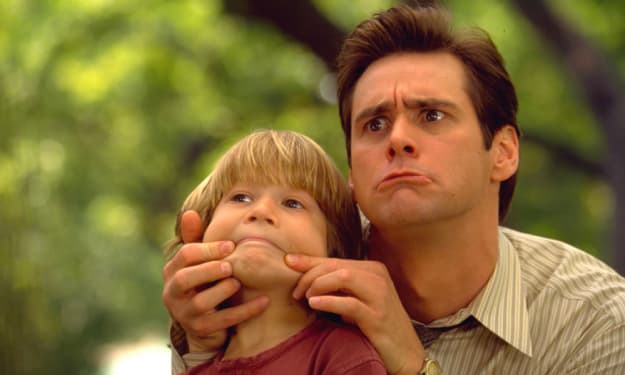

Comments
There are no comments for this story
Be the first to respond and start the conversation.